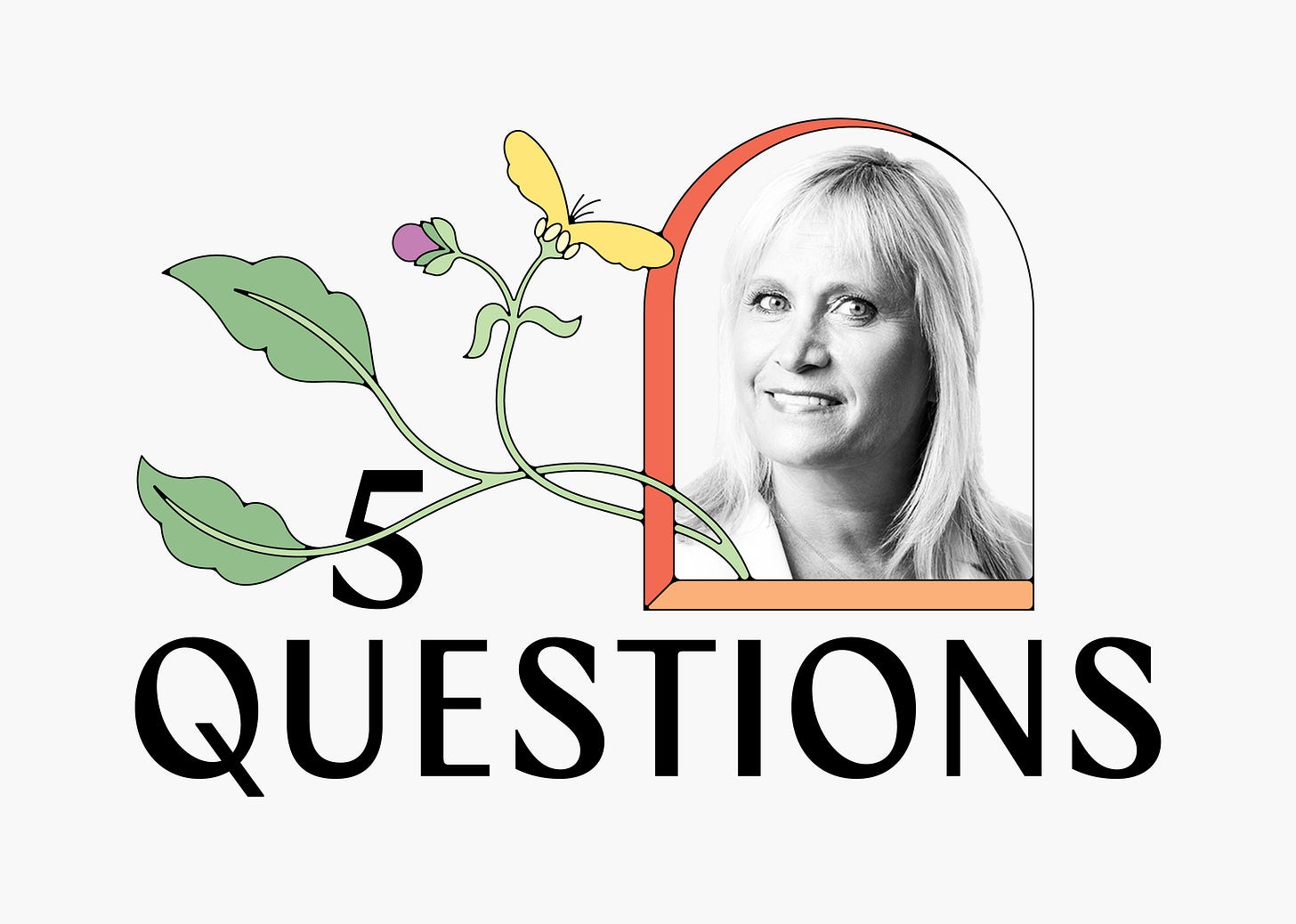Liability insurance for psychedelics: 5 Questions for insurance expert Leslie Nylund
Nylund discusses Baldwin Risk Partners' new liability insurance for psychedelics practitioners
Leslie Nylund has been in the insurance business for over three decades, working in senior leadership roles in two of the nation’s largest public insurance brokers, Willis and AHT. In 2019, Nylund started working with a new client: the Multidisciplinary Association for Psychedelic Studies, or MAPS, perhaps the best-known psychedelics advocacy and research organization. Nylund and her team managed all of MAPS’s insurance, from individual health insurance and property insurance to liability insurance for MAPS’s clinical trials investigating the use of MDMA to treat PTSD. As Nylund learned about the psychedelics field, she saw an opportunity. “I knew there was going to be a huge gap in the marketplace, and that there was going to be a need for medical malpractice insurance,” she said.
Now, Nylund’s Tampa-based firm, Baldwin Risk Partners, is launching liability insurance for psychedelics practitioners — the first in the field to offer such coverage. The Microdose spoke with her about who and what this insurance covers.
Why did you decide to create liability insurance coverage specifically for psychedelics?
Psychedelics have been demonized since the 1970s, but it’s come so far — we’re seeing them get more and more mainstream. Mental illness is a crisis not only in the U.S., but globally, and we’re seeing that psychedelics are really helping people. But it’s difficult to get insurance companies to understand this because these drugs are Schedule I. We’ve heard from practitioners who say they’ve gone to their existing insurance carrier and those companies have said, “No, we won’t cover psychedelics.”
So we’ve decided to put together an exclusive insurance program that we’ve named TheraCover, because we know that psychedelics must always be done in conjunction with therapy. We were very thoughtful about the name for this new product, and we bought the trademark.
Baldwin Risk Partners is a big public firm providing many types of traditional coverage: home insurance, health insurance, property insurance. Did they take much convincing to add psychedelic liability to the list?
No — it was a good fit. We were acquired about three and a half years ago, and our predecessor company, AHT, had expertise in life sciences, biotech, and pharma. So when we were successful in winning the MAPS account, it was second nature to my team and me to expand into this field.
Who is this insurance meant to cover?
Our target audience is to cover all practitioners. That’s a large category, and it includes medical doctors, psychiatrists, physician associates (PAs), nurses, clinicians, and therapists. We also have another group that we call “other”; that’s a catchall for people traditionally known as guides and sitters. Those are people who are not necessarily involved in dosing or intake, but serve as a second pair of eyes.
We want to cover them for medical malpractice exposure involved in using one of three therapeutics: ketamine, which is already FDA approved; psilocybin, which is being approved in states like Oregon and Colorado; and MDMA, once it is approved by the FDA. Use has to be in conjunction with therapy. The insurance would cover these practitioners in their role as a professional: the failure to do something, erroneously missing something on their health intake. We look at it as a defense policy: you can sue anybody for anything, and that doesn’t mean you’re going to win, but that means practitioners could have legal costs.
We’re also looking to cover not only individual professionals or practitioners, but also extending that to cover the clinic itself. That would be things like general liability exposure like slip and falls from people coming in and out of the office. We also plan on cross-selling other products like cyber liability — that’s another emerging risk, since they take in HIPAA-protected private health information. We want to make sure that if there’s ever a breach, there’s coverage for that. And eventually, we’re going to cover workers’ comp. We want to come in with a full suite of products to cover all psychedelic practitioners’ insurance needs down the road.
How will the process of seeking coverage work?
There will be a digital application and we’re going to sell it on a direct to consumer basis. We want to make sure it’s safe — we’re trying to cast as wide a net as we can, but there’s also rigor in our underwriting process, so we’re not going to cover everybody. We want to make sure they’ve got protocols in place, like doing health intake screenings, and making sure they have AED equipment in the office. [Editor’s note: AED stands for automated external defibrillator, a device used when someone goes into cardiac arrest that is considered a basic safety tool in medical settings.] The application will ask these types of questions and some responses might refer applicants to speak to a member of the team so we can further dig and understand their risk exposure. For instance, if someone has lost their medical license, we want to know what happened. Safety is number one here.
We anticipate that once we get all the kinks worked out, it’ll be a 5 to 7 minute process, and applicants can get the policy issued right online and paid for within minutes.
When will TheraCover begin taking applications, and what do you expect demand might look like?
We’re hoping by September 1. There's a huge demand for this right now — coming out of the MAPS conference in mid-June, our phones are just blowing up and we've just had such a great outpouring of interest. I'm probably getting 10 to 15 calls a day asking when we're going to be ready to launch this product.
This interview has been edited and condensed for clarity and length.








Although liability insurance is important it will be yet another added cost in using psychedelics.